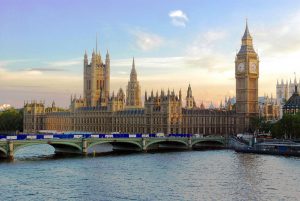Following the end of the First World War it became obvious to the ruling elite that the populace, after suffering such losses and giving so much in defence of the realm, could no longer be excluded from voting for those who would decide the post-war future of the British Empire. Objections to universal women’s suffrage were voiced during debates in the House of Lords. Lord Loreburn argued that ‘it was not right that in such matters as Imperial policy…. that feminist influence should be so powerful.’ (1) This view was held by a significant number of men and led to a compromise over the suffrage of women.
The Representation of the People Act passed in 1918 enfranchised all men over 21 but only those women aged over 30 who met certain property qualifications. The electorate was increased by 5.6 million men and 8.4 million women. Although women were still not enfranchised on equal terms with men it was a great breakthrough for the women’s suffrage movement and recognised the work of women during the war. The need to educate this newly enfranchised group was recognised in the 1920s when various organisations, such as the Workers’ Educational Association and the co-operative movement , began educational programmes. The increase in the electorate also highlighted the need for politicians, for the first time, to take into account public opinion, including in foreign affairs.
References/Further Reading:
(1) Yorkshire Post and Leeds Intelligencer, 10 Jan 1918. The Franchise Bill: Women and the Vote.


